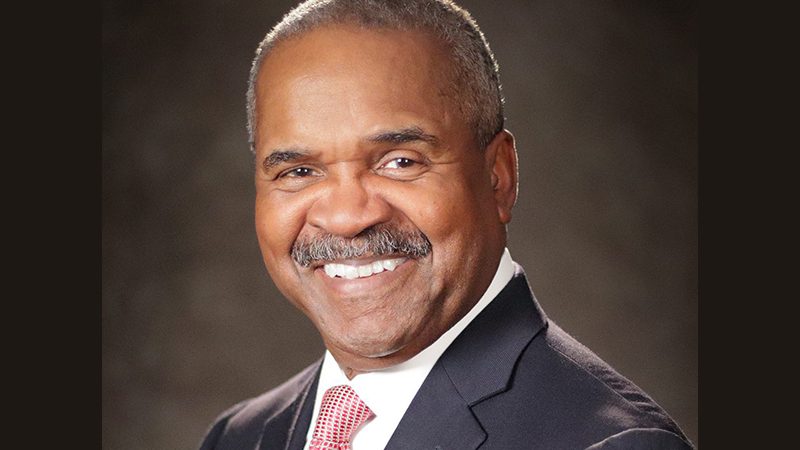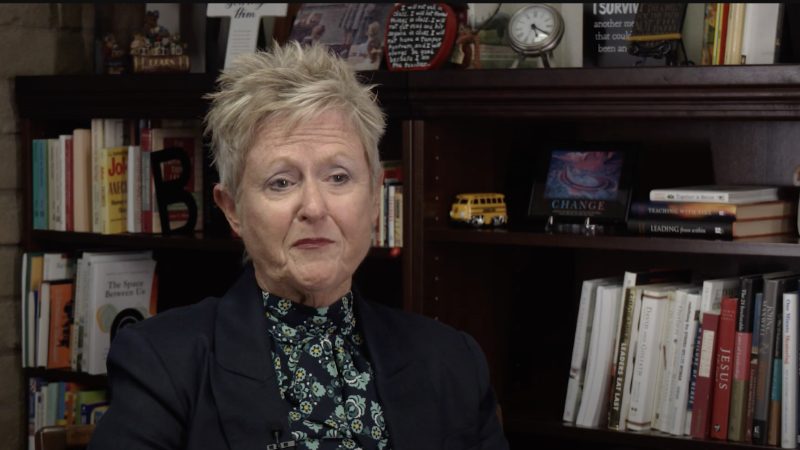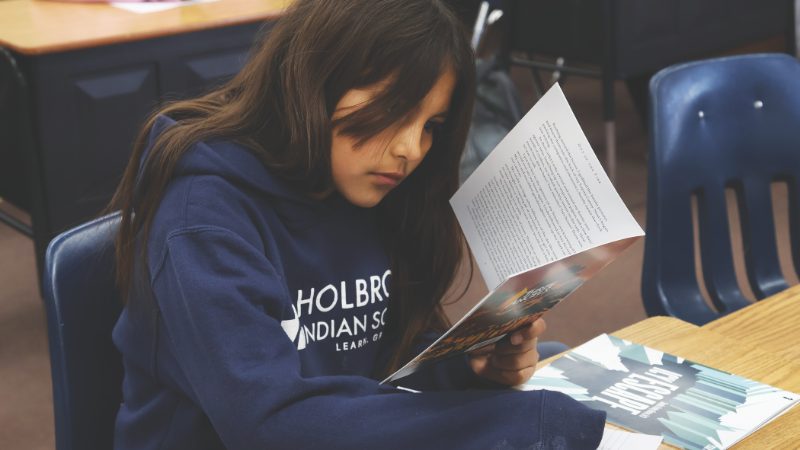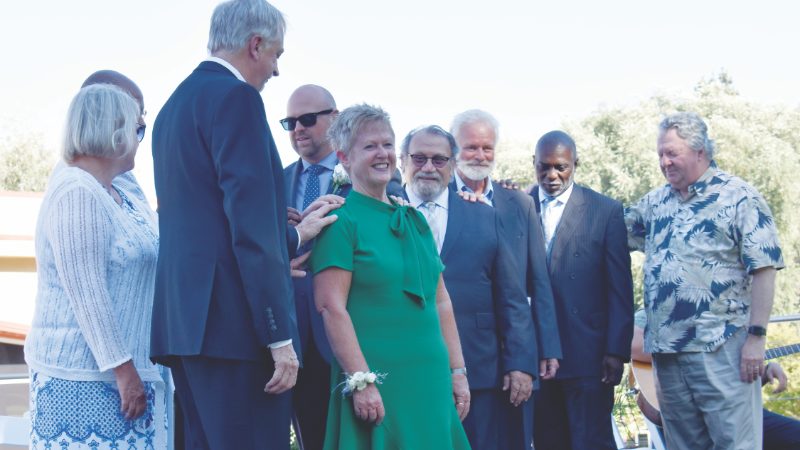
My mom always reminded me,” Dr. Wesley Phipatanakul recalled quietly, blinking through his wire-rimmed glasses, “that the most important thing in the world was my relationship with the Lord.” That, his mother declared, was the reason she sent him to Adventist schools. “She said that over and over—that by providing me with an Adventist education, she knew in her heart that she’d done everything she could to help my walk with Christ.”
It's a powerful legacy to leave with a child, and her words continue to echo in Wes’s mind even all these years later.
At his mother’s insistence, Wes attended Hillcrest Adventist School, a small elementary school near St. Louis, Missouri. “We may have had 60 kids in the entire school, grades one to nine,” Wes chuckled at the memory. He continued his education at Sunnydale Academy, “out in the middle of nowhere in Central Missouri, with one Dairy Queen and one Pizza Hut in the nearest town, five miles away.” Wes thrived in the boarding school environment (“The bonds of friendship are different when you live in a dormitory together with no internet or cell phones!”) and left to pursue higher education imbued with a strong sense of purpose. “That’s a huge part of Adventist education, I think,” mused Wes. “A culture and environment that primes you to listen for that higher calling, that purpose, and then answer it by doing your best for God.”
After graduating from Union College with a business degree, Wes crisscrossed the country to fulfill what he felt he was called to do. He completed medical school in Loma Linda, a residency in Detroit for orthopedics, and then a highly coveted fellowship for upper extremity surgery in San Francisco. “My mom made me read Gifted Hands as a little kid, hoping that I’d be impressed to become a neurosurgeon,” Wes smiled ruefully. Instead, he traded the complexities of the brain for the intricacies of the shoulder. “I just gravitated toward arms,” he shrugged. “I liked doing replacements and I also enjoyed arthroscopy, which was one of the emerging fields as I was coming through.”
As the current program director for the Loma Linda University Orthopaedic Surgery Residency Program, Wes tries hard to balance his administrative, clinical, and teaching responsibilities. He usually operates two days out of the week, with three to four surgeries scheduled on each day, and what he loves most is being able to guide and mentor his residents through his cases. “It certainly takes longer to do a surgery when you’re teaching—when you have a resident watching and working alongside you,” he noted. But Wes would have it no other way. “I really am a teacher trapped in a doctor’s body,” he laughed. While some surgeons might allow their residents to prep and set up the target area without supervision, perhaps even exposing the bone alone, Wes prefers to be right there guiding and mentoring the resident’s work every step of the way. “I’ve found that there is simply no substitute for that hands-on approach. I have to know what they’re capable of and what they’re not yet able to do—and that’s something I have to evaluate with my own eyes.”
Wes has published numerous research articles and has presented and taught all over the country, but he cites his relationships with the residents, colleagues, and the support staff as the most important part of his successful career. Once or twice a year, he shared, one of the older doctors will open up his home to the new med students to enjoy Sabbath dinner and vespers together. “We eat, we get to know each other, we swap stories and contact information.” It’s a community not unlike the one he found at Sunnydale Academy, when Friday evenings were spent at various faculty homes. “It’s not just a job,” he insisted. “It’s a mission.”

But, as all teachers know, there’s a heavy weight that accompanies that responsibility. While Wes strives to impart every bit of his clinical knowledge to his residents, the lessons he gained through Adventist education are also always nearby. “Board scores are nice, publications are nice, but at the end of the day, it’s really about your character, isn’t it? Your character, your morals, your integrity.” And so Wes feels blessed to work in an environment where he has the opportunity to impress upon residents what he was taught from an early age.
“Because what is the end goal for our kids? ‘If a man gains the whole world, but loses his own soul…’” Wes trailed off.
I think his mom would be proud.
_____________________________
Aimee Saesim Leukert is currently an assistant professor in the Curriculum & Instruction Department in the School of Education as well as the associate director for the Center for Research on K–12 Adventist Education at La Sierra University.
El legado de una madre
Por Aimee Saesim Leukert

Mi madre siempre me decía», recordó en voz baja el Dr. Wesley Phipatanakul, parpadeando a través de sus anteojos de montura metálica, «que lo más importante en el mundo era mi relación con el Señor». Esa, declaraba su madre, era la razón por la que lo puso en escuelas adventistas. «Ella dijo eso una y otra vez, que al proporcionarme una educación adventista, sabía en su corazón que había hecho todo lo posible para ayudarme a caminar con Cristo».
Es un legado poderoso para un hijo y sus palabras continúan resonando en la mente de Wesley incluso todos estos años después.
Ante la insistencia de su madre, Wesley asistió a Hillcrest Adventist School, una pequeña escuela primaria cerca de St. Louis, Missouri. «Es posible que hubiese 60 chicos en toda la escuela, de primero a noveno grado», Wesley se rió al recordarlo. Continuó su educación en Sunnydale Academy, «en medio de ninguna parte en el centro de Missouri, con un Dairy Queen y un Pizza Hut en la ciudad más cercana, a cinco millas de distancia». Wesley prosperó en el ambiente del internado («¡Los lazos de amistad son diferentes cuando vives en un dormitorio sin Internet ni teléfono celular!») y prosiguió una educación superior imbuido de un fuerte sentido de propósito. «Creo que esa es una gran parte de la educación adventista», reflexionó Wesley. «Una cultura y un entorno que te preparan para escuchar ese llamado más elevado, ese propósito y responder haciendo lo mejor para Dios».
Después de graduarse de Union College con un título en administración, Wesley recorrió el país para cumplir con lo que sentía que estaba llamado a hacer. Estudió en la escuela de medicina en Loma Linda, una residencia en Detroit en ortopedia y después una beca muy codiciada en cirugía de extremidades superiores en San Francisco. «Mi mamá me hizo leer Manos dotadas cuando era pequeño, con la esperanza de que me convertiese en neurocirujano», Wesley sonrió con pesar. En cambio, cambió las complejidades del cerebro por las complejidades del hombro. «Simplemente gravité hacia los brazos», se encogió de hombros. «Me gustaba hacer trasplantes y también disfrutaba de la artroscopia, que era uno de los campos emergentes».
Como director actual del Programa de Residencia en Cirugía Ortopédica de Loma Linda University, Wesley se esfuerza por equilibrar sus responsabilidades administrativas, clínicas y docentes. Por lo general, opera dos días a la semana, con tres o cuatro cirugías programadas cada día, y lo que más le gusta es poder guiar y asesorar a sus residentes a través de sus casos. «Ciertamente, se requiere más tiempo para hacer una cirugía cuando estás enseñando, cuando tienes a un residente que te observa y trabaja a tu lado», anotó. Pero Wesley no quería que fuese de otra manera. «Realmente soy un maestro atrapado en el cuerpo de un médico», se rió. Si bien algunos cirujanos pueden permitir que sus residentes preparen y establezcan el área objetivo sin supervisión, tal vez incluso exponiendo el hueso solos, Wesley prefiere estar presente guiando y asesorando el trabajo del residente en cada paso. «Me he dado cuenta de que simplemente no hay sustituto para ese enfoque práctico. Tengo que saber de lo que son capaces y de lo que aún no son capaces de hacer, y eso es algo que tengo que evaluar con mis propios ojos».
Wesley ha publicado numerosos artículos de investigación y ha presentado y enseñado en todo el país, pero cita sus relaciones con los residentes, colegas y el personal de apoyo como la parte más importante de su exitosa carrera. Una o dos veces al año, compartió, uno de los médicos más antiguos abre su casa a los nuevos estudiantes de medicina para disfrutar juntos de la cena del sábado. «Comemos, nos conocemos, intercambiamos historias e información de contacto». Es una comunidad no muy diferente a la que encontró en Sunnydale Academy, cuando los viernes por la noche los pasaba en varias casas de profesores. «No es solo un trabajo», insistió. «Es una misión».

Pero, como todos los maestros saben, hay un gran peso que acompaña a esa responsabilidad. Si bien Wesley se esfuerza por impartir cada parte de su conocimiento clínico a sus residentes, las lecciones que obtuvo a través de la educación adventista también están siempre cerca. «Las puntuaciones de la junta son buenas, las publicaciones son buenas, pero al final del día, realmente se trata de tu carácter, ¿no? Tu carácter, tu moral, tu integridad». Y así Wesley se siente bendecido de trabajar en un entorno en el que tiene la oportunidad de inculcar a los residentes lo que le enseñaron desde una edad temprana.
«Porque ¿cuál es el objetivo final para nuestros hijos? “Si un hombre gana el mundo entero, pero pierde su propia alma...”» Wes se quedó callado.
Creo que su mamá estaría orgullosa.
_____________________________
Aimee Saesim Leukert es actualmente profesora asistente en el Departamento de Currículo e Instrucción de la Facultad de Educación en La Sierra University.






